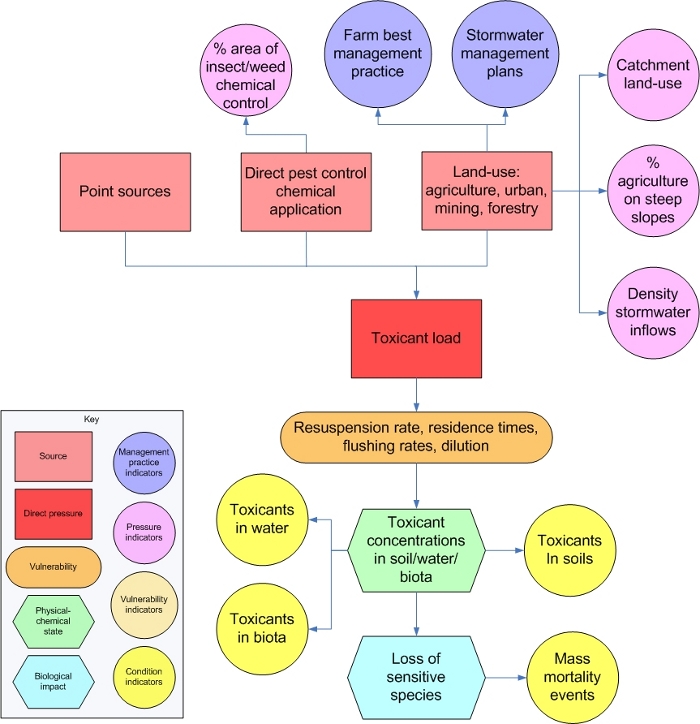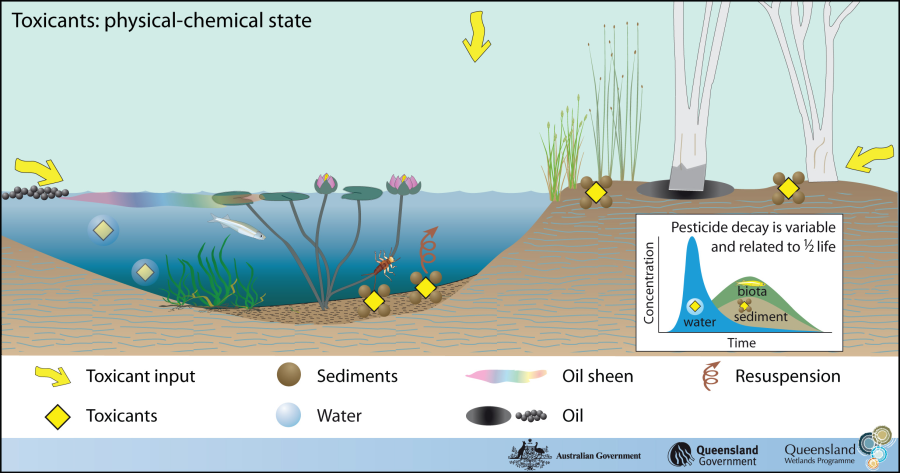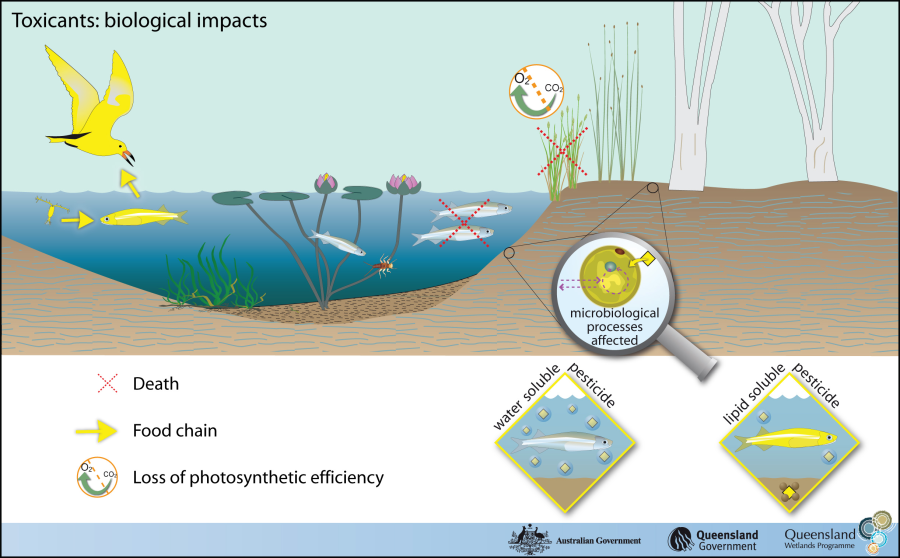|
|
Toxicants – StateToxicants – StateFlow chart showing the major elements associated with toxicant management
Click on elements of the flow chart or select from the tabs below
Pesticides and heavy metals are transported attached to sediments or dissolved in the water. Resuspension of sediments through natural or anthropogenic processes can allow toxicants to become available again. Pesticides and heavy metals are deposited with fine mud sediments. Oil is partially water insoluble and can make its way into soils.
Animals and/or plants that are sensitive to toxicants may die if exposed to them, often in mass events. Pesticides and heavy metals can be assimilated by biota and move through the food chain. Herbicide settlement on plants can affect photosynthetic efficiency and may lead to the death of the plant.
Last updated: 22 March 2013 This page should be cited as: Department of Environment, Science and Innovation, Queensland (2013) Toxicants – State, WetlandInfo website, accessed 8 May 2025. Available at: https://wetlandinfo.des.qld.gov.au/wetlands/management/pressures/lacustrine-palustrine-threats/toxicants/state.html |

 — Department of the Environment, Tourism, Science and Innovation
— Department of the Environment, Tourism, Science and Innovation




